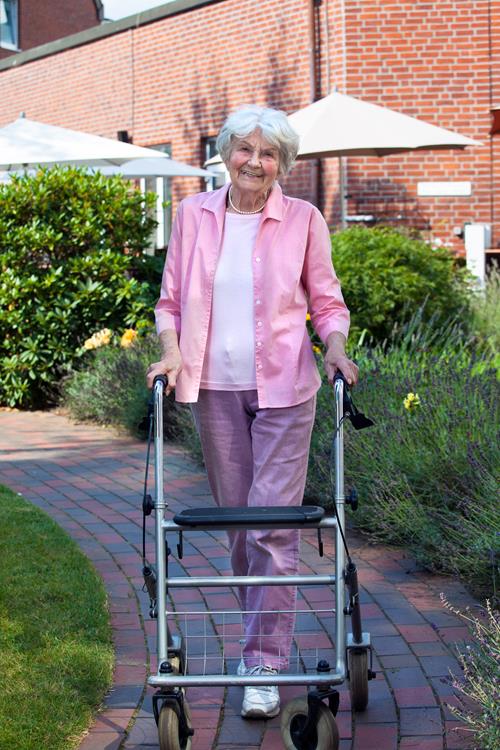 The topic of assisted living is a tough one for any caregiver. We don’t want to admit that we can’t care for our family members anymore – and many seniors want to grow old in their own homes.
The topic of assisted living is a tough one for any caregiver. We don’t want to admit that we can’t care for our family members anymore – and many seniors want to grow old in their own homes.
And who can blame them?
Going into any type of care facility can seem overwhelming, especially as there are so many myths about assisted living.
For that matter, many seniors and their families have no idea what to expect with the process. This aspect alone makes it much more difficult to make the best decision.
With that in mind, this post looks at some of the myths of assisted living for seniors and what the reality is.
Myth: Assisted Living Means Less Independence
It’s easy to assume assisted living means a loss of independence. After all, the senior is moving into a less casual environment and this comes with various requirements and rules.
So, in this sense, independence is decreased. However, there are also many advantages for independence as well.
For one thing, a good assisted living facility helps to promote both the physical and mental health of its residents. This can mean seniors often have more ability to do what they want to – and this alone means they have more independence.
At the same time, seniors have their own space within an assisted living facility. While they don’t have complete autonomy with it, they can still do much more than if they were living with their family or friends. This offers another degree of independence.
 There are also other types of independence that your parent may find with assisted living that they didn’t have previously. For example, there are more activities that they can easily go to, along with staff willing and able to assist. Likewise, there may be planned outings, which could give your family member many more options than they would have otherwise.
There are also other types of independence that your parent may find with assisted living that they didn’t have previously. For example, there are more activities that they can easily go to, along with staff willing and able to assist. Likewise, there may be planned outings, which could give your family member many more options than they would have otherwise.
Many assisted living facilities do also allow seniors to bring their own vehicles, which offers additional independence. Over time, many people find that this isn’t necessary, especially as the facility will typically provide outings. But, having the option to drive can increase a sense of independence.
In practice, the implications of assisted living for independence vary depending on the person.
Many will find that they have more independence, particularly because of the areas mentioned above. However, it is true that independence is decreased in specific areas – which may be a cause for concern in some situations.
One key way around this issue is to carefully consider whether assisted living is the right choice. If it is, take the time to find a place that offers the freedoms that your family member is looking for.
Myth: Seniors Have Less Privacy
Because seniors are living in close proximity to one another, it can seem like they would have little privacy. But, in most cases, they have more privacy than before.
In particular, the senior has their own space that they have control over. This means that they have somewhere safe to retreat to – which is a blessing.
For many seniors, this is actually an increase in privacy. After all, if you have a senior living with you, their privacy may have been limited, especially if you had a busy house or a large family.
The precise setup does vary between assisted living situations and this is something you can take into account when researching locations.
For example, some places offer apartments with kitchenettes, while others serve meals to seniors. Likewise, there are some cases where seniors may share an apartment, along with others where they live alone.
But, regardless of the specific situation, the staff at assisted living facilities tend to be very respectful of privacy – and aware that seniors often do want, and need, time to themselves.
Myth: They’ll Have to Give Up Hobbies
In most cases, assisted living ends up meaning people have more hobbies than previously – rather than fewer. Many companies offer a large range of programs and support for hobbies, including options such as gardening.
There is also the chance for seniors to get involved in entirely new hobbies, ones that they would not have tried previously.
Plus, if the senior has specific hobbies they want to keep (like gardening), this can help guide decisions about assisted living. In some cases, the company may even be able to help you figure out ways for the senior to keep up with their passions, regardless of what they are.
Myth: Assisted Living is Depressing, Cold and Boring
It’s easy to think of assisted living as a place where people go to die. After all, the whole concept is that seniors are unable to take care of their own needs and require support.
 But, assisted living communities often aren’t dull or boring at all. Instead, there is a strong focus on physical and mental health, which includes having a range of different activities on offer.
But, assisted living communities often aren’t dull or boring at all. Instead, there is a strong focus on physical and mental health, which includes having a range of different activities on offer.
The precise selection varies from one company to the next but it’s not unusual to see some of the following:
- Painting classes
- Book clubs
- Walking groups
- Tai Chi
- Billiards
Many companies are also open to suggestions about new activities – and are likely to do them if there is enough interest.
In some cases it is even possible to have a pet in the facility, although you would need to check the requirements of the place first.
The end result is that assisted living can be enjoyable and many people do find precisely that. After all, your family member gets to spend time with people their own age and develop friendships, while participating in a range of activities.
These advantages are even more prominent if you pick a community that strongly suits the interests of your loved one.
Myth: Assisted Living is Expensive

This is an area where the answer is both yes and no.
First off, assisted living does cost and the price can add up. This area is one reason that seniors are often hesitant to go into assisted living – thinking that the process will be a burden on family members.
While the cost can be prohibitive in some cases, having a senior in assisted living is often less expensive than them remaining at home.
Even if the parent is living on their own and has their mortgage paid off, there are various other expenses to consider, including power, maintenance, and insurance payments.
If the parent is living with a family member, the costs will be different but still significant.
In fact, many caregivers find that they have to cut down their hours or stop working altogether to care for their family member. Doing that is often a strain financially, meaning that assisted living often ends up saving money.
Additionally, if you’re considering assisted living, then your family member may need more help than you can adequately provide. It can be difficult to find services that offer this in the home environment – and many of these have to be paid for out of your own pocket.
The end result is that staying at home is often as expensive (if not more so) than assisted living.
Myth: Pricier Facilities and/or Assisted Living Chains are Better
It’s easy to assume that more expensive companies will be better – along with chains that specialize in assisted living or elder care. And, often that’s true.
But, just like any other type of product or service, these assumptions can be wrong.
Instead, there are some high-priced options that are low-quality overall and some less expensive ones that are much better.
This makes it critical to take the time and shop around. The more information you can find, the better informed you will be to make a good decision.
Myth: You’re Abandoning Your Loved One
Moving a family member to assisted living can often feel like abandonment, especially when they’re not excited about the idea themselves. But, if you’re at this stage, doing so may be the best idea for their health and for yours.
After all, assisted living facilities offer a wide range of services and have supports in place that you could never offer within your own home. In time, many seniors find themselves happier in assisted living, especially once they start to socialize and form friendships.
This is true even in cases where the parent is initially resistant.
To some degree or another, most of us don’t like the idea of change, especially if we have little choice it’s going on. But, the human spirit is adaptable and people do learn to make the best of whatever environment they’re in.
Finally, assisted living offers many more chances for socialization than seniors would have access to otherwise. This aspect alone makes the idea a powerful choice, as isolation is common in seniors and can contribute to poor mental health.
Is It The Right Fit?
 At the end of the day, assisted living can be a good solution, especially for seniors who are struggling in their home environment.
At the end of the day, assisted living can be a good solution, especially for seniors who are struggling in their home environment.
Nevertheless, it is still a big decision and it won’t be the right answer for every situation.
This means that families need to spend the time and research the various options and companies to figure out what works best for them.
Being aware of these assisted living myths is a good first step and can help to guide your research further.
Additionally, some of these topics may provide good conversation points for addressing the topic of assisted living with stubborn parents.
If you’re considering housing in general, you can also take a look at our Guide to Affordable Housing for Seniors. This guide covers a range of housing options and highlights many of the differences between them and areas that should be considered.
The information provided is perfect if you’re not sure about assisted living or if you simply want to know what other options there are.

Leave a Reply